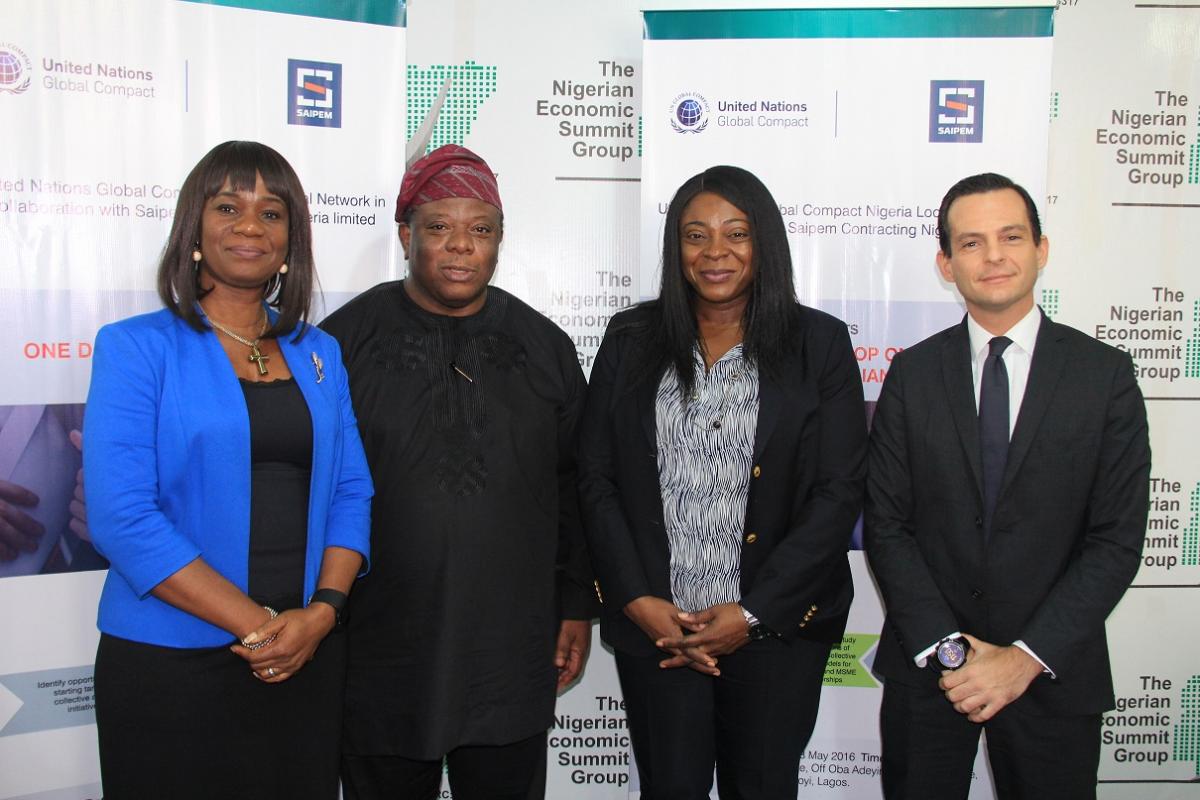How Saipem’s Initiatives on Human Rights and Ethical Supply Chain Create a Healthy, Vibrant Business
by Jim Witkin

Originally published on TriplePundit
For any company that relies on a network of suppliers and subcontractors, maintaining an ethical supply chain — one that protects human rights and promotes fair labor practices and a safe work environment — is hard work. But the challenge is multiplied when you work globally in over 60 countries across five continents, like Saipem, the Italian energy services giant.
The company specialises in the engineering, procurement, construction and installation of pipelines and complex projects, and also offers onshore and offshore drilling services.
Saipem works with more than 26,000 first-tier vendors. This huge number represents a significant challenge when setting up a system that ensures alignment between Saipem’s standards and those adopted by its vendors, according to Raffaella Bersani, Saipem’s manager for sustainability stakeholder engagement, corporate value, and human rights.
A further difficulty arises, she said, when dealing with so many companies “with different cultures, ways of operating, and technical and managerial capabilities.” To tackle this challenge, the company has implemented several noteworthy initiatives to engage with its vendors, as well as internally with its own management employees.
To begin with, the company set up a rigorous assessment process for vendors operating in countries considered high-risk for human and labor rights abuses. This process includes examination of documents and third-party information, on-site verifications and a feedback system to assess vendor behaviour and abilities. A comprehensive training program on human and labour rights topics was also set up for Saipem employees that have recurring relations with vendors.
In addition, Saipem regularly conducts seminars and forums in countries like Nigeria, Saudi Arabia, and Indonesia to educate vendors on health and safety practices and how to set up internal risk assessment and management systems to protect their workers.
Another initiative, the HOPE (Human OPerational Environment) Training Programme, was designed to translate the commitment to human rights into practice. It combines theoretical and practical training for management personnel on key human rights risks and issues particular to the oil and gas industry.
HOPE is specifically targeted at Saipem employees in managerial positions at the local leve,l and also involves client representatives, main business partners, and contractors.
What makes HOPE unique is that it is “based on an on-the-ground approach and tailored to the local context,” said Bersani. “It identifies appropriate solutions for human rights issues that can emerge in day-to-day activities with local stakeholders, which are mainly suppliers and local community members.”
A noteworthy initiative recently conducted in Nigeria is the “Leading by Ethics” campaign. It was targeted both at Saipem employees and suppliers, with the aim of improving awareness of ethics and integrity in business. Fifty Nigerian suppliers were involved. (You can view the training video here.)
The success of the HOPE initiative was recognized by the UN Global Compact Network Nigeria when it was presented during a UNGC Workshop on Ethics and Compliance to representatives of companies and NGOs.
Saipem published its first Sustainability Report back in 2006, but the company’s attention to the supply chain started even earlier, said Bersani, with an initial focus on the protection of workers in terms of health and safety. “Later on, the approach became more comprehensive, including all aspects of the human and labour rights concept.”
In 2016, Saipem officially joined the United Nations Global Compact, after a long period of compliance with UNGC principles as part of its former parent company, the Eni group.
The UNGC is a voluntary initiative based on a company’s commitment to implement universal sustainability principles and to take steps to support the Sustainable Development Goals (SDGs). According to Bersani, Saipem specifically focuses on those SDGs that relate directly to its core business and its ability to create value in the areas where it operates.
With regard to an ethical supply chain, the initiatives carried out by Saipem, as described above, focus on contributing to gender equality (SDG5), decent work and economic growth (SDG8), reducing inequalities (SDG10), promoting peace, justice and strong institutions (SDG16), and enhancing partnership to achieve goals (SDG17).
While protecting human rights and supporting sustainability principles is important, maintaining an ethical supply chain is also good for business, acknowledges Bersani. “We believe that an unethical supplier represents a risk for us not only in terms of reputation but also at operational level, since we can be more exposed to risks of accidents, higher personnel turnover (which means losing skills and competencies), and underperformance in terms of managerial and quality standards overall,” she said.
She also recognizes that building and maintaining an ethical supply chain is not a static process, but an ongoing commitment to learning and refinement. “We are aware that it is a long and continuous process that needs to be monitored constantly in order to be kept vibrant.”
This article series is sponsored by Saipem and went through our normal editorial review process.

